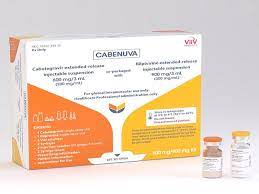Pfizer, Inc. (PFE), a heavyweight in the healthcare sector, continues to capture the interest of investors with its substantial market presence and robust portfolio of biopharmaceutical products. Despite recent challenges reflected in a declining revenue growth of -7.80%, the company still holds promise for individual investors eyeing long-term opportunities. With a market cap of $126.67 billion and its positioning as a leader in drug manufacturing, Pfizer remains a significant player worth examining closely.
Currently trading at $22.28, Pfizer’s stock is near the lower end of its 52-week range of $21.59 to $31.39, marking a slight decrease of 0.01% recently. This modest fluctuation provides a potential entry point for value-focused investors, especially when considering the 31.27% upside potential derived from an average analyst price target of $29.25. The analyst consensus includes 8 buy ratings, 15 hold ratings, and just a single sell rating, indicating a generally favorable outlook.
Pfizer’s valuation metrics offer further insights, particularly the forward P/E ratio of 7.22, suggesting the stock is priced attractively relative to its expected earnings. However, some traditional valuation metrics like the trailing P/E and PEG ratios are unavailable, which may complicate a straightforward assessment. Nevertheless, Pfizer’s ability to generate a free cash flow of over $15 billion demonstrates its capacity to sustain operations and invest in future growth.
Investors seeking income might be drawn to Pfizer’s impressive dividend yield of 7.72%. However, the payout ratio at 122.46% raises questions about sustainability, especially in the face of declining revenues. This high payout ratio implies that Pfizer is returning more capital to shareholders than it is earning, a situation that warrants cautious optimism.
From a technical perspective, Pfizer is currently trading below its 50-day and 200-day moving averages, a signal that might concern technical analysts. The RSI of 57.62 suggests the stock is neither overbought nor oversold, presenting a neutral stance in terms of momentum. Meanwhile, the MACD’s negative figure of -0.26 against a slightly lower signal line of -0.29 indicates a bearish trend, at least in the short term.
Pfizer’s diversified product lineup spans various therapeutic areas, including cardiovascular, infectious diseases, and biosimilars, with well-known brands like Eliquis, Comirnaty, and Paxlovid. These products not only address current health challenges but also position Pfizer for future opportunities, especially in the evolving landscape of mRNA and antiviral treatments.
The company’s strategic collaborations with entities like Bristol-Myers Squibb and BioNTech SE fortify its research and development pipeline, potentially catalyzing new revenue streams as innovative products hit the market. Pfizer’s ongoing commitment to addressing unmet medical needs positions it well in a competitive industry.
For investors considering a stake in Pfizer, the mix of substantial dividend yield, potential upside, and a robust product portfolio presents a compelling case. However, it is crucial to weigh these factors against the backdrop of its current financial metrics and market conditions. As the healthcare sector continues to evolve, Pfizer’s ability to adapt and leverage its assets will be key to unlocking future value for shareholders.








































